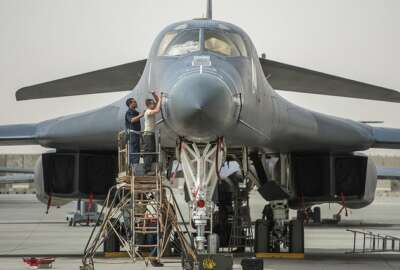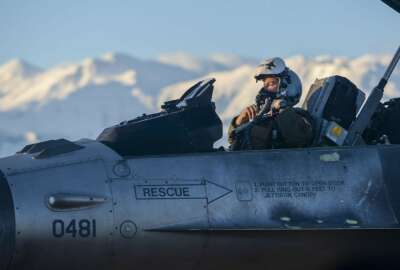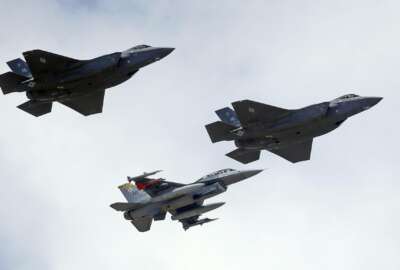
Air Force eliminates ‘unnecessary’ performance evaluations for junior enlisted personnel
The Air Force says it will no longer require its most-junior airmen to go through formal performance reviews. Officials framed the move as the latest in a series of...
In what its officials framed as another step to cut back on administrative workload within its squadrons, the Air Force said on Thursday that it will no longer require its most junior enlisted airmen to undergo regular performance evaluations.
Going forward, most airmen will not get their first performance review until after they’re promoted to the rank of senior airman (E-4), or after they’ve served in uniform for three years, whichever comes first.
Previously, the service had required anyone who’s served for at least 20 months — regardless of whether they were an Airman Basic or a seasoned Chief Master Sergeant — to have documented enlisted performance reports (EPRs) in their record once per year. However, the EPRs were deemed not to be particularly useful for troops who are in the initial years of their careers, since their first promotions are generally considered to be automatic unless they run into disciplinary problems.
“While the Air Force values the contributions of all enlisted personnel, the requirement to document performance in a formal evaluation prior to the grade of senior airman is not necessary,” Lt. Gen. Gina Grosso, the deputy chief of staff for manpower, personnel and services, said in a statement. “Instead, the Air Force has additional means available to document an airman’s performance and to ensure he or she is meeting the training, developmental and experiential skills required to perform as professional airmen.”
But officials said the decision to do away with EPRs at the service’s entry-level ranks would not completely eliminate its mechanisms for evaluating airmen in the first years of their careers. Twice each year, they will still be required to go through less-formal Airman Comprehensive Assessments: face-to-face sessions with their supervisors in which they document expectations and performance goals on a worksheet.
The Air Force said the change was primarily intended to let junior airmen and their supervisors spend more of their energy ensuring that they learned the basics of their military specialties during their first years in uniform, and less on complying with institutional administrivia that had no obvious purpose.
In a release announcing the change, the service said it was meant to conserve “airmen’s time,” a slogan its leaders have repeated amid several other policy changes they said were designed to let service members focus on responsibilities that were more directly related to warfighting as it struggles with what senior officials say is an undermanned force.
Under the same banner, the service began eliminating dozens of additional administrative duties that had been assigned to uniformed airmen in 2016, reassigning some of them to civilian staff and contractors. Another, announced later that year, cut or consolidated more than 30 routine, mostly computer-based training courses that had been required of all airmen.
Copyright © 2024 Federal News Network. All rights reserved. This website is not intended for users located within the European Economic Area.
Jared Serbu is deputy editor of Federal News Network and reports on the Defense Department’s contracting, legislative, workforce and IT issues.
Follow @jserbuWFED





